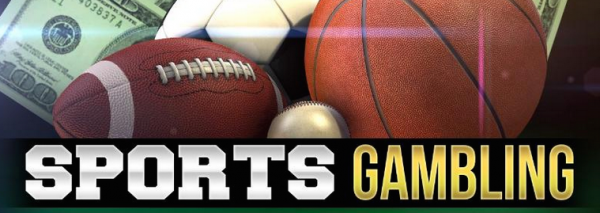Axios: States See Disappointing Tax Revenue From Legalized Sports Betting
With the Betting on Sports America conference taking place in New Jersey this week, there's some bad news to be had regarding revenues generated to date by states already active in this sector.

WHY BE AN AFFILIATE WHEN YOU CAN GET 100%? JUST PAY $5 PER PLAYER
Axios is reporting that, out of the six states that have legalized sports betting since the US Supreme Court reversed federal prohibition against the activity last May, only one (New Jersey) has exceeded revenue expectations.
“(There is a) growing consensus that legal sports betting may not bring the windfall that economic forecasters predicted only a few months ago," the New York Times' Timothy Williams reports.
Axios notes that West Virginia has only collected one quarter of what it had forecast. Some of this is a result of issues pertaining to a software vendor that has now resulted in a lawsuit filed by one of the five West Virginia casinos.
Rhode Island has done even worse, bringing in $50,000 per month after predicting they'd bring in almost $1 million. This epic fail should serve as a perfect example of how NOT to approach stateside sports wagering.
Delaware is meeting projections, but it's thanks in large part to a football-betting operation that's been around since 2009.
Only New Jersey has fully implemented online sports betting. West Virginia, as noted, has attempted to. Rhode Island just did, but on a limited scale in terms of types of wagers offered (i.e. no parlays).
Mississippi has opened sportsbooks predominantly in Tunica and Biloxi but mobile betting is only permitted within the establishments themselves, which sort of defeats the purpose.
New Jersey allows individuals to place wagers using their smartphones from anywhere within the state.
Aggressive protectionism could result in decreased demand in the long run however as a market of just under 8 million reaches its cap. Nearly a dozen sportsbooks now operate here with a handful of affiliate partners chasing after the crumbs. The big beneficiaries so far, outside of a few operators and the state coffers, appear to be local sports radio stations. New Jersey's Gaming Commission requires that affiliates pay a vendors fee and cease advertising offshore sportsbooks.
Axios writes:
Following New Jersey's lead and getting mobile sports betting up and running seems like the obvious answer to these states' revenue problems. Unfortunately, a little something called politics will make that a slow and complicated process, as casinos continue to apply pressure on legislators.
New Jersey does have a few limitations. There is no betting on a decent Seton Hall team during College Basketball, no wagering on Rutgers Football games, no bets on locally hosted college sporting events and individuals must be 21 years or older. The later excludes the majority of college age students. Additionally, customers of the NJ-licensed sportsbooks will be required to pay taxes on winnings.
- Gilbert Horowitz, Gambling911.com














